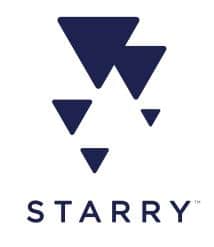 Starry, Inc., a fixed wireless internet provider, this week announced it has won 104 licenses in the FCC’s recent spectrum auction, allowing the company to launch service to over 40 million people in 25 states, potentially covering more than 25% of all U.S. households.
Starry, Inc., a fixed wireless internet provider, this week announced it has won 104 licenses in the FCC’s recent spectrum auction, allowing the company to launch service to over 40 million people in 25 states, potentially covering more than 25% of all U.S. households.
“We are excited to take this important next step, augmenting our shared spectrum strategy with exclusively licensed spectrum,” said Starry CEO and co-founder Chet Kanojia. “This gives us the ability to provide access to unlimited, affordable, high quality internet access. We built our technology to be agile and operate across a range of frequencies, so that we could take advantage of opportunities like this to expand and grow our network.”
Starry’s internet service advertises 200/200 Mbps speed without data caps for a flat $50 a month, equipment included. The service will now also use licensed frequencies in the 24 GHz band and reach customers over a point-to-multipoint network that serves multi-dwelling residential units primarily in dense urban areas, but can affordably service other areas with a significant population density.
Starry claims to offer a simple, no bundles, no-long-term contract, no-data caps, no-hidden fees plan of $50 per month, and is up and running in parts of Boston, Los Angeles, Washington, D.C., New York City, and Denver. Customers give Starry a rating of 4.9 out of 5.0 stars in over 100 Google reviews.
Customers like Raphael Peña are fans.
“It’s awesome so far, 300 Mbps down and about the same up,” Pena writes. “The price is right and I can play Battlefield V or any other game with no lag. I just wish you could get this for homes but I’m loving it in my apartment.”
So far, Starry is focused on serving multi-dwelling units like apartments and condos in downtown areas that are increasingly attractive to younger residents. The technology can be extended to serve other customers at an average cost of around $20 per residence. Most of their customers are young cord-cutters or cable-nevers, and Starry only sells internet service, skipping video and phone service. Starry works closely with real estate developers, which may be similar to those canary wharf estate agents, and owners to deploy Starry internet service, sometimes as an amenity to attract new renters and keep current ones happy.
With the latest spectrum acquisition, Starry plans to expand service in phases, starting with Chicago, San Francisco, Houston, Dallas, Seattle, Detroit, Atlanta, Indianapolis, Philadelphia, Miami, Memphis, Phoenix, Minneapolis, Manchester, N.H., Portland, Ore., and Sioux Falls, S.D. But the company also plans to reach cities in the 25 states where it now holds licensed spectrum. How fast it reaches these cities will depend on available funding and subscriber interest:
Starry’s Spectrum Licenses Cover These Communities
| State | Cities |
| Alabama | Birmingham, Huntsville, Mobile |
| Arizona | Tucson |
| Arkansas | Little Rock |
| Colorado | Colorado Springs, Fort Collins |
| Florida | Jacksonville, Tallahassee |
| Idaho | Boise City |
| Illinois | Decatur |
| Indiana | South Bend, Fort Wayne, Bloomington |
| Kansas | Wichita |
| Kentucky | Louisville |
| Ohio | Cleveland, Cleveland, Cincinnati, Toledo, Dayton, Columbus |
| Massachusetts | Springfield |
| Mississippi | Jackson |
| Nevada | Las Vegas, Reno |
| New Mexico | Albuquerque |
| New York | Buffalo, Albany, Syracuse, Rochester |
| North Carolina | Fayetteville, Greensboro, Charlotte, Raleigh |
| Louisiana | Baton Rouge, New Orleans |
| Pennsylvania | Harrisburg |
| South Carolina | Charleston |
| Tennessee | Nashville, Chattanooga, Memphis |
| Texas | San Antonio, Brownsville, Lubbock, El Paso |
| Virginia | Virginia Beach |
| Washington | Spokane |
| Wisconsin | Milwaukee, Madison |
Light Reading’s Mike Dano discussed how to build an affordable fixed 5G internet service with Alex Moulle-Berteaux, chief operating officer for Starry, at the Big 5G Event in Denver on May 8, 2019. (16:41)


 Subscribe
Subscribe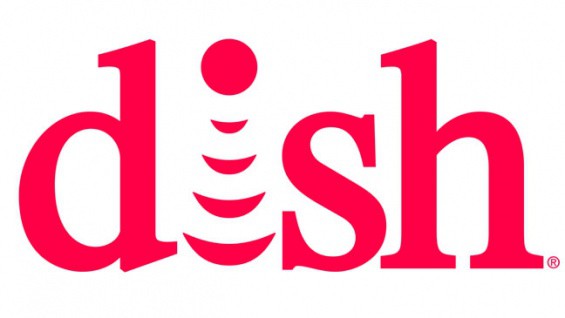 Dish Network Corporation is in the final stages of talks to acquire assets that include valuable wireless spectrum and Sprint’s Boost Mobile brand for an estimated $6 billion, according to a report quoting anonymous sources
Dish Network Corporation is in the final stages of talks to acquire assets that include valuable wireless spectrum and Sprint’s Boost Mobile brand for an estimated $6 billion, according to a report quoting anonymous sources  Wall Street analyst MoffettNathanson remains skeptical about the T-Mobile/Sprint merger and is even more puzzled by Dish’s reported involvement. The analyst firm released a research note to its clients warning the future of Boost may be bleak:
Wall Street analyst MoffettNathanson remains skeptical about the T-Mobile/Sprint merger and is even more puzzled by Dish’s reported involvement. The analyst firm released a research note to its clients warning the future of Boost may be bleak: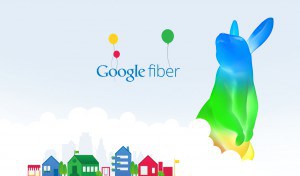 Third party contractors hired to install fiber optic infrastructure that will deliver Google Fiber internet service in parts of North Carolina are getting an increasing number of complaints from frustrated residents upset with the pace of the work, the mess it creates, and disruptions caused when crews accidentally damage existing utilities.
Third party contractors hired to install fiber optic infrastructure that will deliver Google Fiber internet service in parts of North Carolina are getting an increasing number of complaints from frustrated residents upset with the pace of the work, the mess it creates, and disruptions caused when crews accidentally damage existing utilities.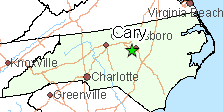 This summer’s service disruptions are coming at inopportune times, Cary residents complain. Recently, crews mistakenly cut through cables providing power, phone, and cable service, knocking out power for four hours and cutting off air conditioning on a 92 degree day.
This summer’s service disruptions are coming at inopportune times, Cary residents complain. Recently, crews mistakenly cut through cables providing power, phone, and cable service, knocking out power for four hours and cutting off air conditioning on a 92 degree day. Suddenlink is taking full advantage of a lax approach to regulatory oversight in Texas by laying its cables just about anywhere it pleases, and without talking to local officials about exactly what the cable system is doing.
Suddenlink is taking full advantage of a lax approach to regulatory oversight in Texas by laying its cables just about anywhere it pleases, and without talking to local officials about exactly what the cable system is doing.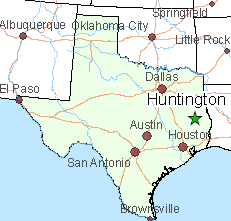 “For the most part, when they finally decided to do it they just started laying lines,” Stewart told the newspaper.
“For the most part, when they finally decided to do it they just started laying lines,” Stewart told the newspaper.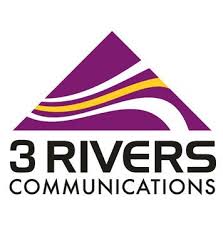 After years of increasing costs for video programming, the disadvantages of not being large enough to qualify for lucrative volume discounts, and a declining customer base, a Montana cooperative says it is calling it quits on cable television service later this year to focus on its broadband business.
After years of increasing costs for video programming, the disadvantages of not being large enough to qualify for lucrative volume discounts, and a declining customer base, a Montana cooperative says it is calling it quits on cable television service later this year to focus on its broadband business.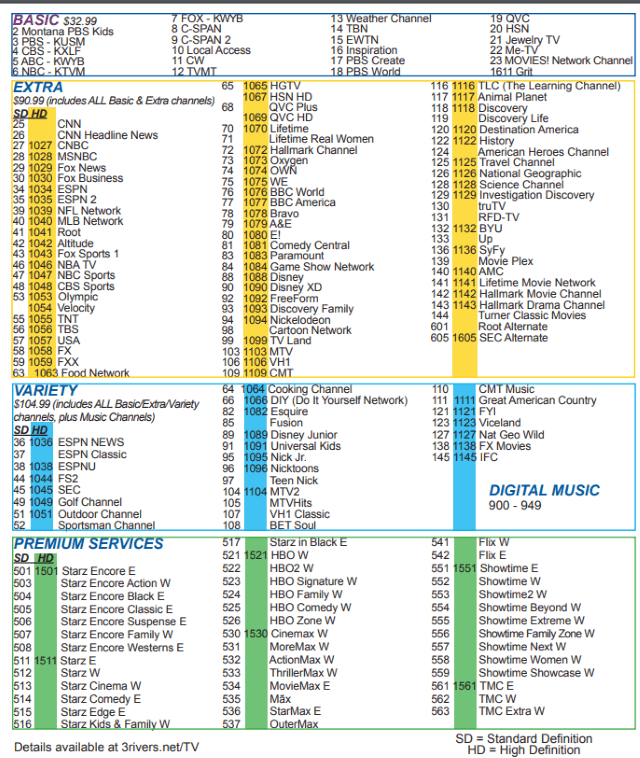
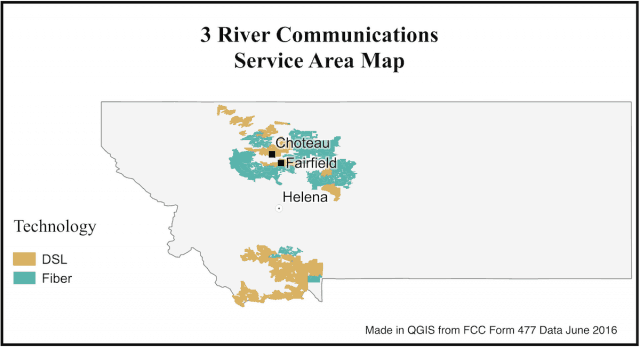 “With all the new streaming options available, [including] Netflix and Hulu and Amazon Prime, in addition to traditional satellite providers like Dish and DirecTV, we just can’t really compete anymore,” 3 Rivers marketing director Don Serido
“With all the new streaming options available, [including] Netflix and Hulu and Amazon Prime, in addition to traditional satellite providers like Dish and DirecTV, we just can’t really compete anymore,” 3 Rivers marketing director Don Serido 